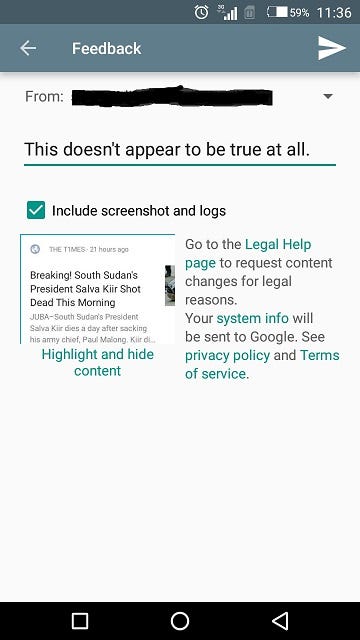“To remain the web’s weavers and not its ensnared victims, we must merge with our electronic ‘exocortex’, wiring greater memory, thought processing and communication abilities directly into our brains.”Hughes, James (18 November 2006). “What comes after Homo sapiens?”
Today while I searching for a term on my Google app, I noticed an extraordinary news item prominently displayed under the search bar. Its headline reeked of the usual sensationalism you’d expect from modern media outlets and, had it not have anything to do with a fellow East African Nation, I probably would have ignored it.
 |
| The Piece of Fake News link I Encountered. Nothing screams for attention more than “Breaking!” |
But it was too distracting and important a headline to ignore. A quick search helped confirm suspicion; this was most probably fake news being peddled by an unscrupulous website that doesn’t mind publishing pure junk for the ad revenue.
If you’re not familiar with the subject of the headline, here’s the short version: South Sudan, the world’s newest, independent country, has a president from the ruling Sudan People’s Liberation Movement (SPLM) party called Salva Kiir. He’s currently locked in a bitter rivalry with his own vice president named Machar. This internal strife has cost the country dearly ever since.
Regardless of how you feel about all this, news of the president’s death, given the situation and the nature of ethnic-based conflicts, would be a big blow to the country, nullifying any remote chance of peace for the foreseeable future. People sharing this online can potentially do irreversible damage to the country’s already delicate situation (perhaps it is of small comfort that most of the country’s impoverished citizens might not actually see this news piece).
Unless we do things differently, like what I did immediately after discovering that this was fake news.
 |
| To Fake to Share. I hope Big G still listens to feedback |
To be honest, this does not change my personal stance on the general subject of fake news; fake news is a part of humanity and that will never change. It exists on all sides of the spectrum. What can change is how each and every one of us RESPOND to any news item we encounter wherever we are on the web. We should not get so easily caught up in our own web. If we are going to prosper in our web of information, WE THE USERS must learn to navigate it well. We must invest ourselves in keeping our web clean and healthy before we start asking corporations and institutions to keep it clean for us.
The tools already exist for this to happen. All we need now is to inculcate in ourselves the mental discipline needed to use these tools. If every human knew how to identify, verify and filter fake news from real news with an accuracy of 100% (assuming that is even theoretically possible given the constraints of the human brain), we’d never have to worry about a clickbait news sparking a civil war. And it can all start with a simple act, like not sharing a faulty news piece.
No comments:
Post a Comment